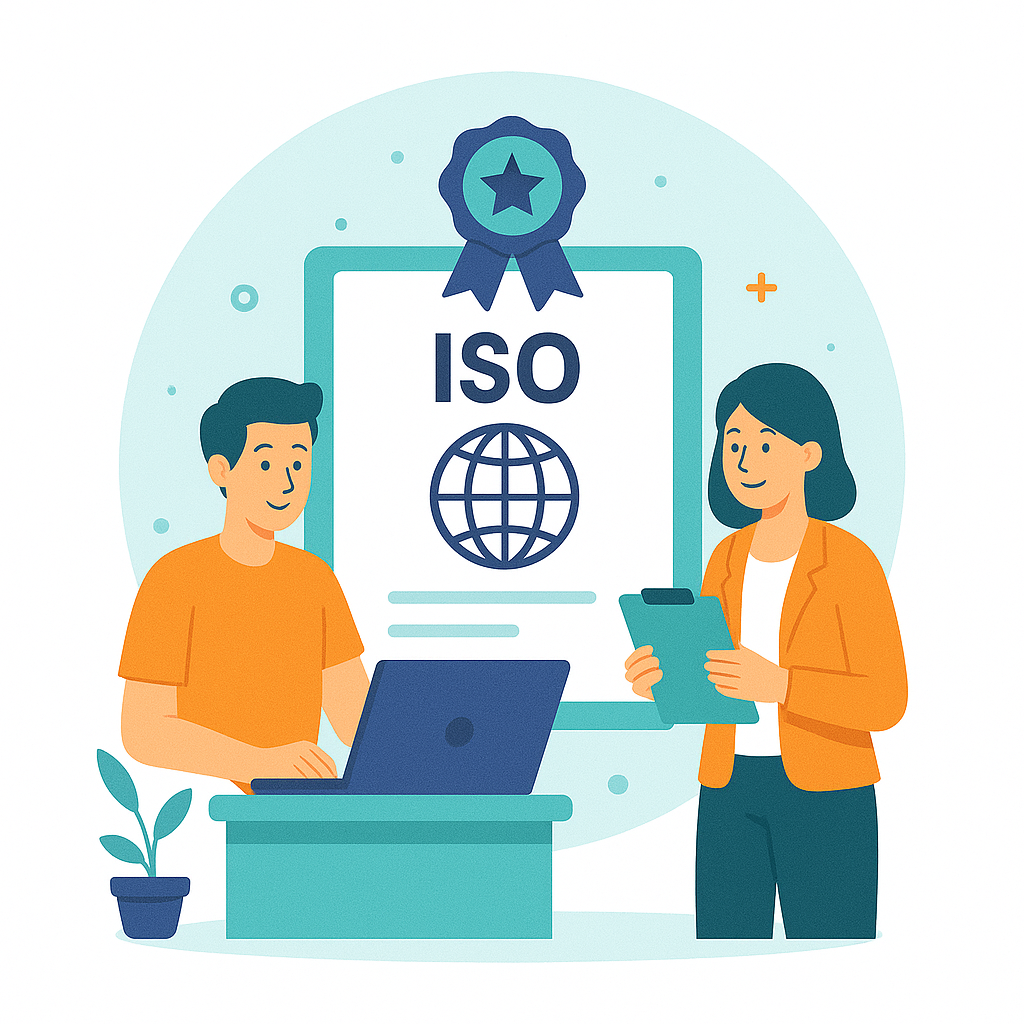
ISO Certification
Many international bodies provide certification to organisations to demonstrate that their products, services and processes meet recognized standards. ISO certification helps improve quality, regulatory compliance and customer confidence.
FAQ on ISO Certification
What is ISO Certification?
ISO certification is a formal recognition by an independent third party that an organisation’s management systems meet the requirements of a specific ISO standard. It builds trust with clients and stakeholders.
How to get ISO Certification?
Usually you will document processes, implement the management system, run internal audits, and then apply to a certifying body for external assessment. We can help you prepare and guide through the process.
Why should I get ISO Certification?
ISO certification demonstrates commitment to quality/safety/environment and often helps with tenders, vendor approvals and export market access.
Advantages of ISO Registration
How ISO helps your organisation
International Credibility
ISO certifies your systems against international benchmarks which helps enter global markets.
Marketability
Certification enhances brand value and customer trust in marketing and sales.
Government Tenders
Many tenders and government contracts require or prefer ISO-certified suppliers.
Business Efficiency
Standardised procedures reduce errors and increase operational efficiency.
Product Quality
Improved process control leads to fewer rejections and higher product quality.
Customer Satisfaction
Consistent quality improves customer satisfaction and retention.
Process of ISO Registration
High level steps to obtain ISO certification
Gap Assessment
Assess current processes against the chosen ISO standard.
Documentation
Prepare procedures, policies and required records (SOPs).
Implementation
Implement the documented system across the organisation.
Internal Audit
Conduct internal audits and management reviews to ensure compliance.
Certification Audit
External audit by a notified certification body.
Certification & Maintenance
On successful audit you get the certificate; maintain and improve via periodic surveillance audits.
Documents Required
Some commonly requested documents for ISO assessments
Identity Proof
Aadhaar / PAN / Passport of proprietor / directors.
Incorporation Proof
Certificate of incorporation or business registration.
Process Documents
SOPs, manuals and records relevant to the standard.
Financials
Basic financial statements or turnover proof (if requested).
Commonly obtained ISO certifications
ISO 9001
ISO 9001 helps organisations set up a quality management system that focuses on customer satisfaction, process approach, continual improvement and evidence-based decision making.
- Customer focus & leadership
- Process approach & continual improvement
- Risk-based thinking & documented procedures
ISO 14001
ISO 14001 helps organisations implement environmental management controls to reduce environmental impact, optimise resource usage and comply with environmental regulations.
- Reduce environmental impact & waste
- Compliance with environmental legislation
- Continual improvement of environmental performance
Frequently Asked Questions
ISO certification demonstrates that an organisation follows internationally recognized management system standards which improves processes and market credibility.
Typical timelines vary from a few weeks (documentation & implementation) to a few months depending on company readiness and audit scheduling.
Yes — ISO standards are scalable and many small businesses obtain ISO 9001 / ISO 14001 with proportionate documentation and controls.
Consultants can speed up documentation and implementation but are not mandatory. We offer hands-on support if you prefer.
Ready for ISO Certification?
We help with gap analysis, documentation, internal audits and certification audit support — end-to-end.